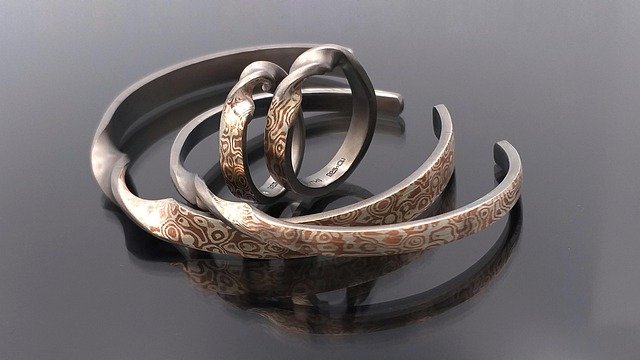Dental Bridges: Options, Procedure, and Cost Guide
A dental bridge is a common tooth restoration used to replace one or more missing teeth by spanning the gap with artificial teeth anchored to adjacent natural teeth or implants. It can help restore chewing, stabilize nearby teeth, and improve the appearance of your smile. Understanding how bridges work, the role of dental crowns and implants, and the potential costs can help you make informed decisions with your dentist.

This article is for informational purposes only and should not be considered medical advice. Please consult a qualified healthcare professional for personalized guidance and treatment.
What is a dental bridge and how does it restore teeth?
A dental bridge replaces missing teeth by connecting an artificial tooth (pontic) to crowns on the adjacent teeth or to implant abutments. Dentists assess the condition of supporting teeth, overall oral health, and bite alignment before recommending a bridge. Bridges may be recommended when a patient needs tooth restoration to prevent drifting of neighboring teeth and to maintain chewing function and facial structure.
How do dental crowns, ceramic crowns, and zirconia crowns fit with bridges?
Bridges commonly use dental crowns to anchor the appliance. Crowns cover the prepared supporting teeth and are available in materials like ceramic crowns or zirconia crowns. Ceramic crowns offer good aesthetics for front teeth, while zirconia crowns provide higher strength for molars or when durability is a priority. Your dentist will consider color match, occlusion, and wear on opposing teeth when choosing crown materials.
When should you consider dental implants versus a bridge?
Dental implants replace missing tooth roots with titanium or ceramic posts placed in the jawbone, providing a foundation for crowns or implant-supported bridges. Implants can preserve the jawbone and avoid altering adjacent healthy teeth. However, implants require sufficient jawbone volume and a surgical procedure. Traditional bridges may be appropriate when adjacent teeth already need crowns or when surgery is not preferred. Discuss options with your dentist to weigh longevity, surgical considerations, and oral health goals.
What does the dental procedure involve and what are oral health considerations?
Bridge procedures typically involve several visits: assessment and imaging, tooth preparation or implant placement, impressions, and final fitting. A dentist will trim the abutment teeth for crowns or place implants and allow healing before attaching a permanent bridge. Good oral hygiene is essential—brushing, flossing around pontics, and professional dental care reduce the risk of decay on abutment teeth and gum disease. Regular check-ups help monitor the bridge, crowns, and surrounding tissues to support a healthy smile.
Dental cost, dental tourism, and border clinics: pricing insights and providers
Costs for dental bridges vary widely by location, provider, and materials (for example, ceramic crowns or zirconia crowns). Dental tourism and border clinics can offer lower prices in some regions, but quality, aftercare, and travel considerations should be factored into decisions. Dental insurance may cover part of the cost depending on your plan and whether the procedure is deemed restorative rather than cosmetic. The table below offers a general comparison across common provider types and service options.
| Product/Service | Provider | Cost Estimation |
|---|---|---|
| Traditional fixed dental bridge (per unit/pontic) | Private dental clinic (local dentist) | US: $500–$1,500 per unit; UK: £300–£800 per unit |
| Implant-supported bridge (per implant + bridge) | Aspen Dental (US) / local implant specialists | US: $3,000–$6,000 per implant; full implant-supported bridges range $6,000–$20,000 depending on number of teeth |
| Multi-unit bridge via dental tourism | Tijuana border clinics (various accredited clinics) | Approx. $700–$2,500 for multi-unit bridges (varies by clinic and materials) |
| Ceramic or zirconia crown on bridge abutment | Bupa Dental Care (UK) / private clinics | UK: £400–£1,200 per crown; prices vary by material and lab fees |
Prices, rates, or cost estimates mentioned in this article are based on the latest available information but may change over time. Independent research is advised before making financial decisions.
Choosing a dental clinic, dentist, and insurance factors
When evaluating a dental clinic in your area or considering border clinics for dental tourism, review credentials, patient reviews, and before-and-after cases. Seek a spanish-speaking dentist if language support is needed. Confirm warranty policies, follow-up care, and how complications are handled across borders. Contact your dental insurance to learn coverage specifics for bridges, crowns, or implant procedures and check whether preauthorization is required for more complex dental treatment.
Dental bridges are a versatile option for tooth restoration that interact closely with dental crowns, implants, and overall oral health planning. Discuss material choices—such as ceramic crowns versus zirconia crowns—alongside long-term maintenance and cost implications with your dentist to determine the most appropriate approach for your smile.






